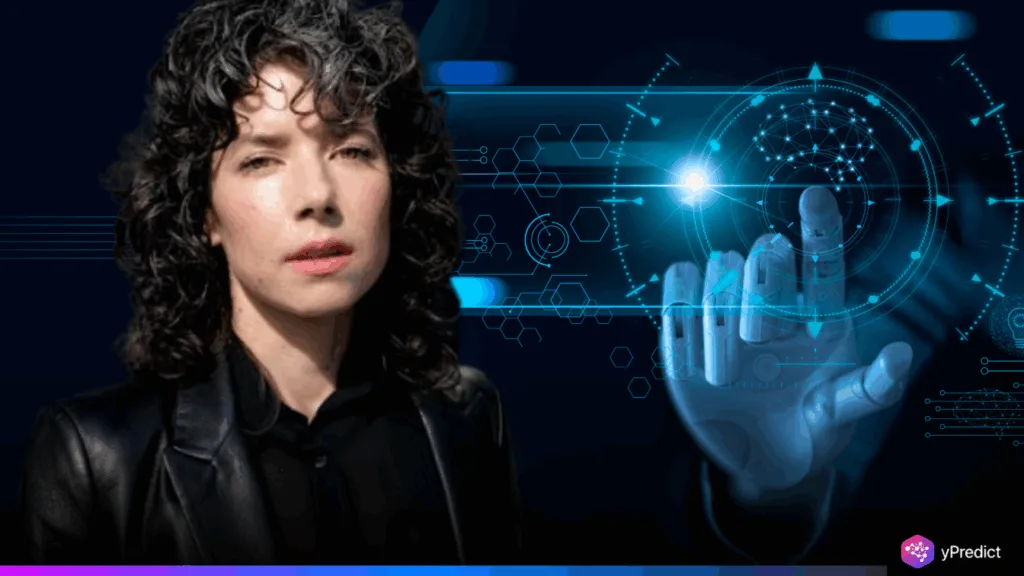
Meredith Whittaker, the President of the Signal Foundation, highlighted the dangers of having AI development concentrated in a handful of entities. Addressing the AI for Good Summit 2025, she cautioned that without democratic control, AI would be destructive instead of beneficial to society. The unavailability of transparency and regulation potential can increase inequality, restrict rights, and further the concentration of power as AI becomes integrated into our lives, including healthcare, hiring, and more. International concerns regarding the world in general echo her sentiments, and they have set the year 2025 as the International Year of Quantum Science, too.
Why AI Needs More Than Just Innovation to Be Ethical
Whittaker is not concerned hypothetically. With the continuing development of AI, its uncontrolled application is becoming a really dangerous menace to society. These are manipulation, discrimination and social control.
- Superstar Firms: A small number of companies concentrate on the research and infrastructure that runs AI. They enable themselves to impose the social perception, control economies, and define what is talked about in the day with impunity.
- Privacy: Numerous AI systems work as black boxes. People find the process of decision-making unfamiliar; whether they are applying to receive a loan, seeking police assistance, or getting hired, they consequently mistrust.
- Bias and Discrimination: Current data educates AIs. When such data is biased, so are the results. This may support social injustice, particularly to marginalized groups.
- Privacy and Erosion of privacy: AI makes mass surveillance possible. The lack of strict regulation allows the controlled use of AI by governments and corporations so that they can track, monitor, and control citizens.
- Weakened Human Agency: This over-dependence on AI would create an over-reliant society, where they have computers make hard decisions that involve little human input.
Those are the hazards that we already see, and they will continue to increase at the cost of governments, civil organizations, and society playing a role in determining the future of AI. It is not innovation alone. Accountability, governance, and inclusiveness are mandatory in order to make AI serve people, rather than the profitability of technology companies.
Global Trends Show the Urgency for Regulatory Oversight
The AI for Good Summit 2025 was like a bell ringer. The organizers meant for the summit to exemplify how AI could aid in the goals of the United Nations for sustainable development. Whittaker, in his message, challenged the audience to appreciate the darker side of innovation.
- International Power Inequalities: The nations most endowed with resources will be able to control AI advancement, further distorting geopolitical lines.
- Missing Democracy: Decision-makers make the majority of the decisions concerning the AI system in the dark. Developers hardly consult the citizens in the development or implementation of such tools.
- Job Displacement: The fear is that AI would eliminate human employment in all sectors. From customer service to transport, which would cast doubt on jobs and the economy.
- Deepfake and Disinformation: AI is capable of reproducing images, videos, and audio in a fake but realistic form. This is a threat to media credibility, a source of misinformation, and a source of weakness in democracy.
- Exploitation of Data: AI rides on the data of individuals. Without powerful safeguards, corporations may mine and make money out of our data without our permission.
AI may turn into a solution to most of the global issues, but only when we design it transparently and democratically. The present trends indicate that we are moving in the other direction. Failing to take course correction, AI could end up concentrating wealth, power, and information into the hands of a few.
The Future of AI Depends on the Choices We Make Now
The speech of Meredith Whittaker highlighted the necessity to battle the dark sides of AI. The threats run not only from power concentration and loss of privacy to manipulation and exclusion but are not distant. They are taking place as we read. Technology is changing like any other thing in life; therefore, our knowledge about its adaptation in life should also change. AI is coming, and only one thing is clear. It is either going to be a way to elevate and free us. Or it enslaves us and hooks us with its chains. And to your mind, what might be even more sinister outcomes of the universal implementation of AI in everyday life?






